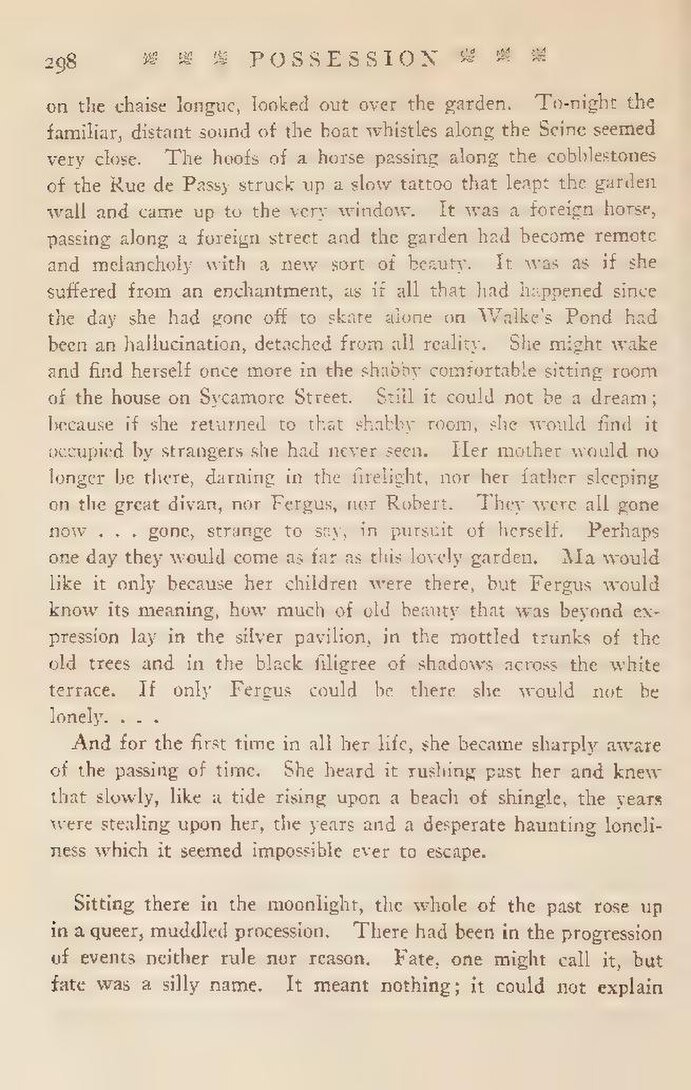on the chaise longue, looked out over the garden. To-night the familiar, distant sound of the boat whistles along the Seine seemed very close. The hoofs of a horse passing along the cobblestones of the Rue de Passy struck up a slow tattoo that leapt the garden wall and came up to the very window. It was a foreign horse, passing along a foreign street and the garden had become remote and melancholy with a new sort of beauty. It was as if she suffered from an enchantment, as if all that had happened since the day she had gone off to skate alone on Walke's Pond had been an hallucination, detached from all reality. She might wake and find herself once more in the shabby comfortable sitting room of the house on Sycamore Street. Still it could not be a dream; because if she returned to that shabby room, she would find it occupied by strangers she had never seen. Her mother would no longer be there, darning in the firelight, nor her father sleeping on the great divan, nor Fergus, nor Robert. They were all gone now . . . gone, strange to say, in pursuit of herself. Perhaps one day they would come as far as this lovely garden. Ma would like it only because her children were there, but Fergus would know its meaning, how much of old beauty that was beyond expression lay in the silver pavilion, in the mottled trunks of the old trees and in the black filigree of shadows across the white terrace. If only Fergus could be there she would not be lonely. . . .
And for the first time in all her life, she became sharply aware of the passing of time. She heard it rushing past her and knew that slowly, like a tide rising upon a beach of shingle, the years were stealing upon her, the years and a desperate haunting loneliness which it seemed impossible ever to escape.
Sitting there in the moonlight, the whole of the past rose up in a queer, muddled procession. There had been in the progression of events neither rule nor reason. Fate, one might call it, but fate was a silly name. It meant nothing; it could not explain
